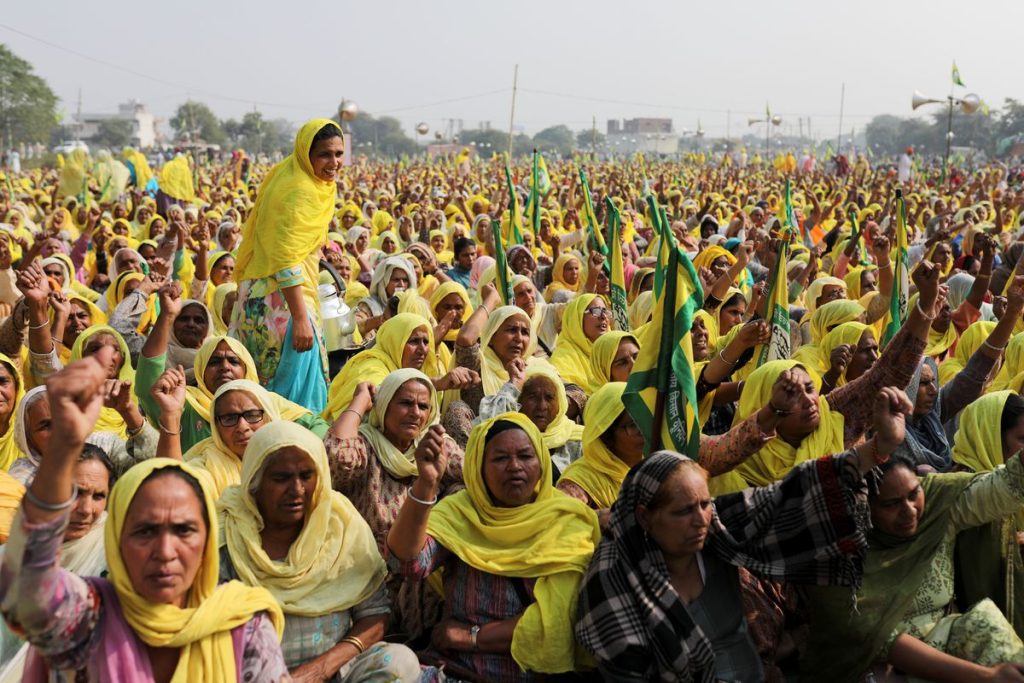
India’s repeal of agriculture laws aimed at deregulating produce markets will starve its vast farm sector of much-needed private investment and saddle the government with budget-sapping subsidies for years, economists said.
Late last year, Prime Minister Narendra Modi’s government introduced three laws meant to open up agriculture markets to companies and attract private investment, triggering India’s longest-running protest by farmers who said the reforms would allow corporations to exploit them.
With an eye on a critical election in populous Uttar Pradesh state early next year, Modi agreed to rescind the laws in November, hoping to smooth relations with the powerful farm lobby which sustains nearly half the country’s 1.3 billion people and accounts for about 15% of the $2.7 trillion economy.
But by shelving the most ambitious overhaul in decades, Modi’s backtracking now seemingly rules out much-needed upgrades of the creaky post-harvest supply chain to cut wastage, spur crop diversification, and boost farmers’ incomes, economists said.
“This is not good for agriculture, this is not good for India,” said Gautam Chikermane, a senior economist and vice president at New Delhi-based Observer Research Foundation.
“All incentives to shift towards a more efficient, market-linked system (in agriculture) have been smothered.”
The u-turn does allay farmers’ fears of losing the minimum price system for basic crops, which growers say guarantees India’s grain self-sufficiency.
“It appears the government realised that there’s merit in the farmers’ argument that opening up the sector would make them vulnerable to large companies, hammer commodities prices and hit farmers’ income,” said Devinder Sharma, a farm policy expert who has supported the growers’ movement.

发表回复